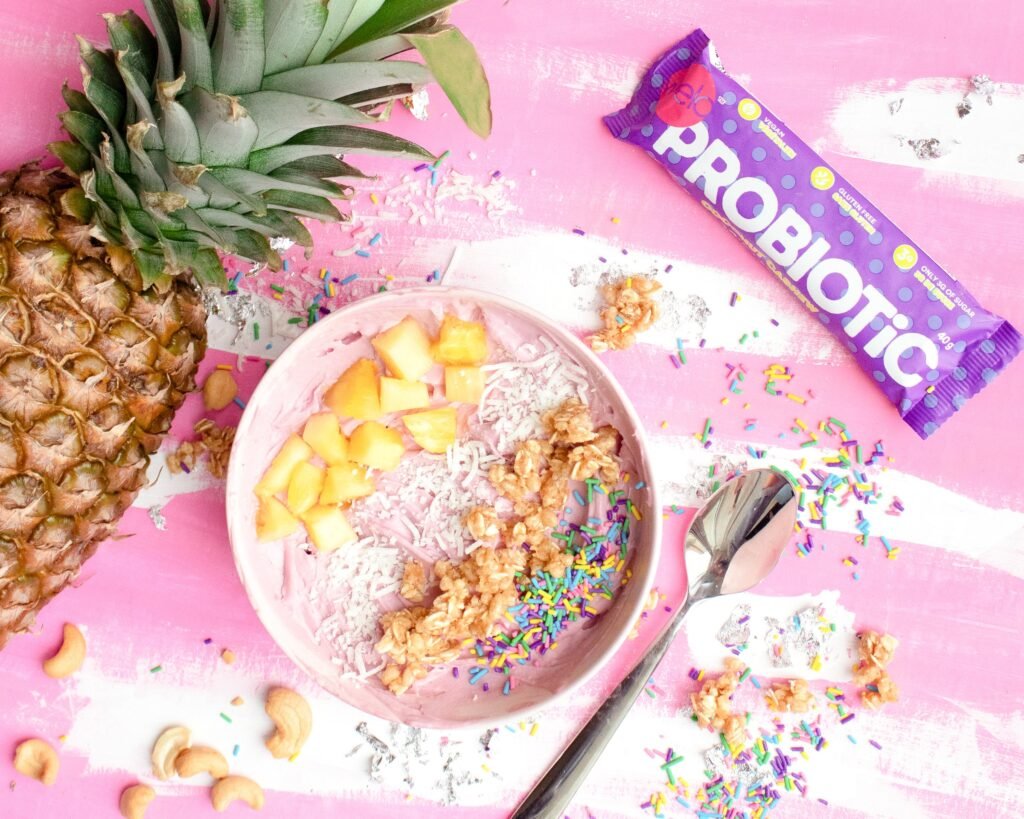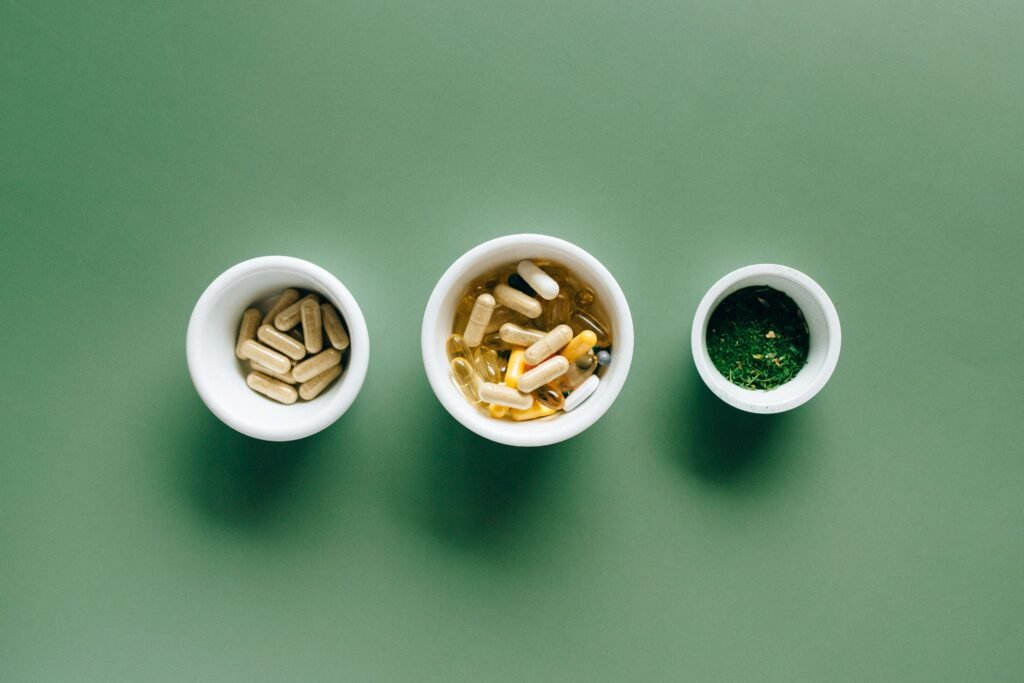Introduction
As women, it is essential to take care of our gut health. Research has shown that maintaining a healthy gut microbiome can have a significant impact on our overall health and well-being. Probiotics are live microorganisms that can help promote a healthy balance of bacteria in our gut, and their benefits extend beyond just digestion. In this post, we will explore the power of probiotics for women and how they can help balance gut health.
Probiotics for Women: Understanding the Gut Microbiome
In this section, we will explore what the gut microbiome is and why it’s essential to achieving a healthy balance of bacteria in the gut. We will look at the impact of the gut microbiome on digestion, immunity, and overall health and well-being.
The gut microbiome is a complex community of microorganisms, including bacteria, viruses, fungi, and other microbes, that reside in our gastrointestinal tract. These microorganisms play a crucial role in various physiological functions, from aiding in digestion to supporting our immune system. The composition and diversity of the gut microbiome can vary from person to person, and it can also change over time due to factors like diet, lifestyle, and medication use.
One of the primary functions of the gut microbiome is to aid in the digestion and absorption of nutrients. It helps break down complex carbohydrates, produce essential vitamins, and regulate energy metabolism. When the balance of the gut microbiome is disrupted, it can lead to digestive problems, including bloating, gas, and irregular bowel movements.
Moreover, the gut microbiome has a significant impact on our immune system. A healthy gut microbiome can help protect against infections and autoimmune diseases by regulating the immune response. It also plays a role in the development and maturation of immune cells.
The gut microbiome’s influence extends to other aspects of our health and well-being, such as mood and mental health. The gut-brain connection, known as the “gut-brain axis,” is a bidirectional communication system between the gut and the brain. Research has shown that an imbalanced gut microbiome can contribute to conditions like anxiety and depression.
Probiotics for Women:

What are probiotics?
In this section, we will explore the different types of probiotics for women and their specific benefits for women’s gut health. We will also look at how probiotics can support our immune system, reduce inflammation, and promote a healthy skin microbiome.
Probiotics are live microorganisms that, when consumed in adequate amounts, provide health benefits. They are often referred to as “good” or “friendly” bacteria because they can help restore and maintain a healthy balance in the gut microbiome.
There are various strains of probiotics, and each may offer distinct advantages. Some of the most common probiotic strains include Lactobacillus and Bifidobacterium species. These bacteria can help improve the gut microbiome’s balance by crowding out harmful bacteria and promoting the growth of beneficial ones.
How do they work?
Probiotics work in several ways to benefit women’s gut health. They can enhance digestion by aiding in the breakdown of food and the absorption of nutrients. Additionally, probiotics can help regulate bowel movements and alleviate digestive discomfort, making them particularly helpful for individuals with conditions like irritable bowel syndrome (IBS).
In terms of immune support, probiotics contribute to a well-functioning immune system by maintaining a balanced gut microbiome. They can stimulate the production of antibodies and strengthen the gut’s mucosal barrier, which acts as the first line of defense against pathogens.
Reducing inflammation is another key benefit of probiotics. Chronic inflammation has been linked to a wide range of health issues, including cardiovascular disease, diabetes, and certain types of cancer. Probiotics have the potential to mitigate inflammation by modulating the immune response and promoting a balanced microbiome.
Beyond digestive and immune benefits, probiotics can also have a positive impact on the skin microbiome. An imbalance in the skin’s microbiome can lead to conditions like acne, eczema, and rosacea. Probiotic skincare products have gained popularity for their potential to restore balance and promote healthier skin.
Read Also: Omega 3 Fish Oil: A Comprehensive Guide to Its Benefits and Uses
Natural Sources of Probiotics for Women

In this section, we will outline the different natural sources of probiotics, such as fermented foods, yogurt, kefir, and kimchi. We will explore the benefits of each and how they can be incorporated into your diet.
Incorporating probiotics into your diet can be as simple as enjoying certain fermented foods. These natural sources of probiotics offer a tasty way to support your gut health. Here are some common foods rich in probiotics:
-
Yogurt:
Yogurt is perhaps the most well-known probiotic food. It contains live cultures, usually Lactobacillus bulgaricus and Streptococcus thermophilus, which help maintain a healthy gut microbiome. Look for yogurt labeled “contains live and active cultures.”
-
Kefir:
Kefir is a fermented dairy product similar to drinkable yogurt. It is rich in a variety of probiotic strains and is easily digestible. Kefir can be consumed on its own or used as a base for smoothies.
-
Sauerkraut:
Sauerkraut is fermented cabbage and a good source of probiotics. It contains Lactobacillus bacteria and is often used as a condiment or side dish.
-
Kimchi:
Kimchi is a spicy fermented cabbage dish popular in Korean cuisine. It contains a mix of probiotic strains and is not only flavorful but also a great addition to meals.
-
Miso:
Miso is a traditional Japanese seasoning made from fermented soybeans or grains. It’s a staple in Japanese cuisine and can be used to make soups and marinades.
-
Tempeh:
Tempeh is a fermented soybean product that is rich in probiotics and a good source of plant-based protein. It can be used in a variety of recipes, including stir-fries and sandwiches.
-
Pickles:
Some types of pickles, particularly those made through fermentation rather than pickling in vinegar, can contain probiotics. Look for pickles that are labeled as fermented.
-
Traditional buttermilk:
Traditional buttermilk, the liquid leftover after churning butter, is fermented and contains probiotics. It can be consumed as a refreshing drink or used in recipes.
Incorporating these probiotic-rich foods into your diet can be a delicious and effective way to support your gut health. Remember to choose options that contain live and active cultures, as the pasteurization process can kill beneficial bacteria.

In this section, we will focus on the specific benefits probiotics can have for women’s health, such as reducing the risk of urinary tract infections, preventing yeast infections, and supporting overall vaginal health.
Probiotics play a significant role in maintaining women’s health in various ways. Here are some of the specific benefits that probiotics offer:
-
Urinary Tract Infections (UTIs):
UTIs are a common issue for many women. Probiotics can help reduce the risk of UTIs by promoting a balanced gut microbiome, which, in turn, can influence the urinary microbiome. Lactobacillus strains, in particular, are known to inhibit the growth of harmful bacteria in the urinary tract.
-
Yeast Infections:
Vaginal yeast infections, caused by the overgrowth of Candida yeast, can be uncomfortable and recurrent. Probiotics, when taken orally or applied topically, can help maintain a balanced vaginal microbiome. Lactobacillus bacteria are key players in preventing and treating yeast infections.
-
Vaginal Health:
Probiotics can support overall vaginal health by promoting the dominance of beneficial bacteria, especially Lactobacillus species, in the vaginal microbiome. A balanced vaginal microbiome can help prevent infections and maintain a healthy pH level.
-
Menstrual Health:
Some research suggests that probiotics may help alleviate symptoms associated with menstruation, such as bloating and cramps, by promoting gut health and reducing inflammation.
-
Pregnancy:
During pregnancy, maintaining good gut health is essential not only for the mother but also for the developing baby. Probiotics can help support the mother’s immune system and digestive health during this critical period.
It’s important to note that while probiotics can be beneficial for women’s health, individual responses may vary. If you are considering probiotics to address specific health concerns, it’s advisable to consult with a healthcare provider who can offer personalized recommendations based on your needs.
Conclusion
In conclusion, taking care of our gut health is essential for women to maintain overall health and well-being. Incorporating probiotics into our diet can have profound benefits beyond digestion, supporting our immune system, reducing inflammation, and promoting healthy skin and vaginal microbiomes. By understanding the gut microbiome and the power of probiotics, we can take control of our health and thrive.
However, it’s crucial to remember that probiotics are not a one-size-fits-all solution, and their effectiveness may vary from person to person. Before adding probiotic supplements or making significant dietary changes, it’s advisable to consult with your healthcare provider. They can provide guidance and recommendations tailored to your specific health needs.
By prioritizing our gut health and making informed choices regarding probiotics, women can take proactive steps to enhance their well-being and achieve a healthier, more balanced life. Whether it’s preventing digestive discomfort, supporting the immune system, or promoting women’s health, probiotics have the potential to be powerful allies on our journey to optimal health.
“Don’t forget to consult with your healthcare provider before adding supplements to your diet.”

I was recommended this website by my cousin. I am not sure whether this post is written by him as no one else know such detailed about my difficulty You’re wonderful! Thanks!
I do agree with all of the concepts you’ve introduced for your post. They are very convincing and can certainly work. Still, the posts are too brief for starters. May just you please prolong them a little from subsequent time? Thanks for the post.